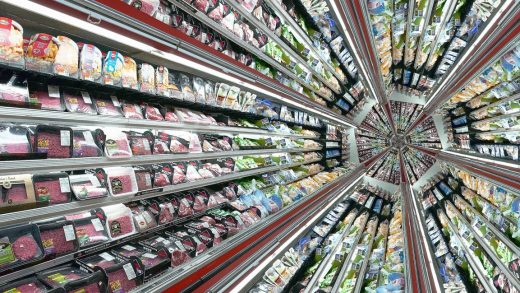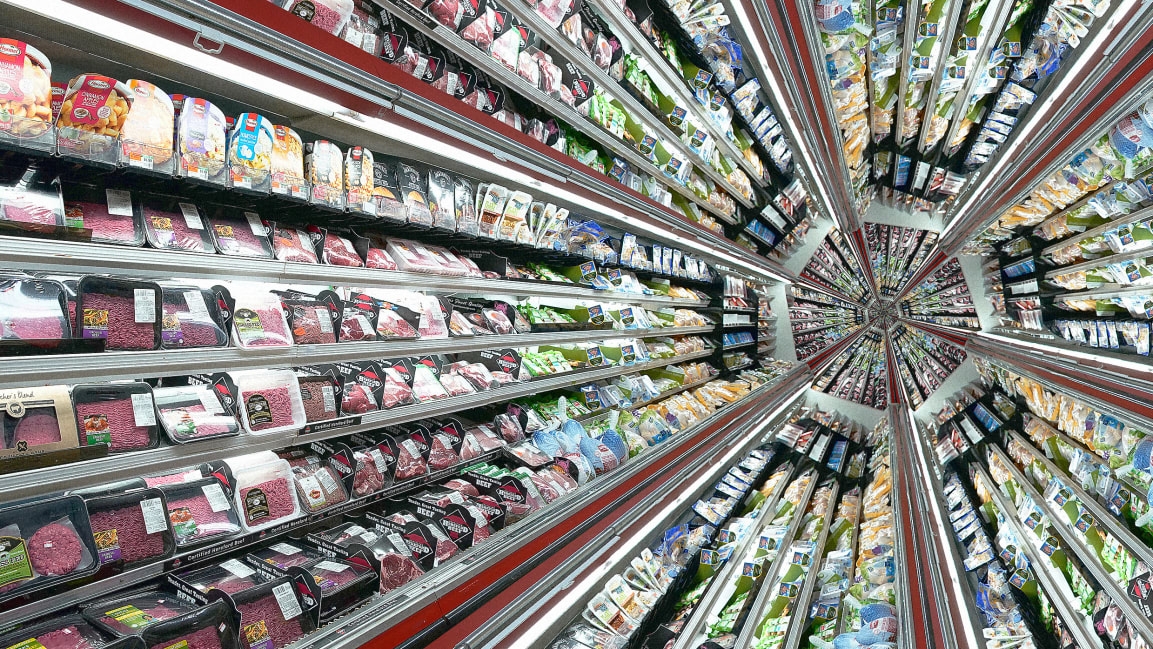When will we reach peak meat?
A new report from Boston Consulting Group and Blue Horizon, an impact investor focused on alternative protein, predicts that we could reach peak meat by 2030, and with more regulatory support, it could happen as early as 2025. The same could happen in Europe. “We’re debating single-digit years now,” says Decker Walker, head of agribusiness at Boston Consulting Group. “So it’s not an ‘if’ but ‘when’ question that we’re at peak meat. . . . It doesn’t require a breakthrough. It’s technology that’s here. It just needs to be deployed in a more widespread manner than it is today.”
Plant-based burgers, the report says, are just a couple of years away from reaching parity with beef in terms of taste, texture, and price. Plant-based chicken, which is more expensive to produce in comparison to conventional chicken, will take a little bit longer. (“Cultivated” meat, grown from animal cells in bioreactors, won’t reach parity until 2032; products such as plant-based steak will also take longer than something like plant-based ground beef.) As the products reach parity, the report projects that adoption will steeply increase.
The report looks at the total alternative protein market, including meat, dairy, and eggs, and says that it’s likely to grow to 11% of the overall market by 2035, a seven-fold increase from its current size. The shift to plant-based meat and eggs, by itself, could save more than a billion metric tons of CO2, roughly as much as the annual emissions of the entire country of Japan. Improvements in technology will also help—for example, finding less expensive ways to scale up production of heme, the ingredient that helps give the Impossible Burger its meaty taste and color.
If new regulations were brought to bear—such as carbon prices that impact conventional meat or new support for farmers who want to transition from raising livestock to growing ingredients for plant-based meat—alternative protein could grow to 22% of the market by 2035, and “peak meat” would happen in 2025 in North America and Europe. In some other parts of the world, where meat consumption is growing as incomes increase, the peak may happen a little later.
But to tackle climate change, it has to happen soon. In a 2019 letter published in The Lancet Planetary Health, dozens of scientists suggest that the world needs to reach peak meat by 2030. That’s both because of the emissions that come directly from raising animals and because if animal agriculture shrinks, some land could be restored as carbon-sucking forests. As countries set new targets under the Paris climate agreement—something that is happening now—the scientists say that governments should “declare a timeframe for peak livestock” and figure out how agriculture can transition.
(35)



